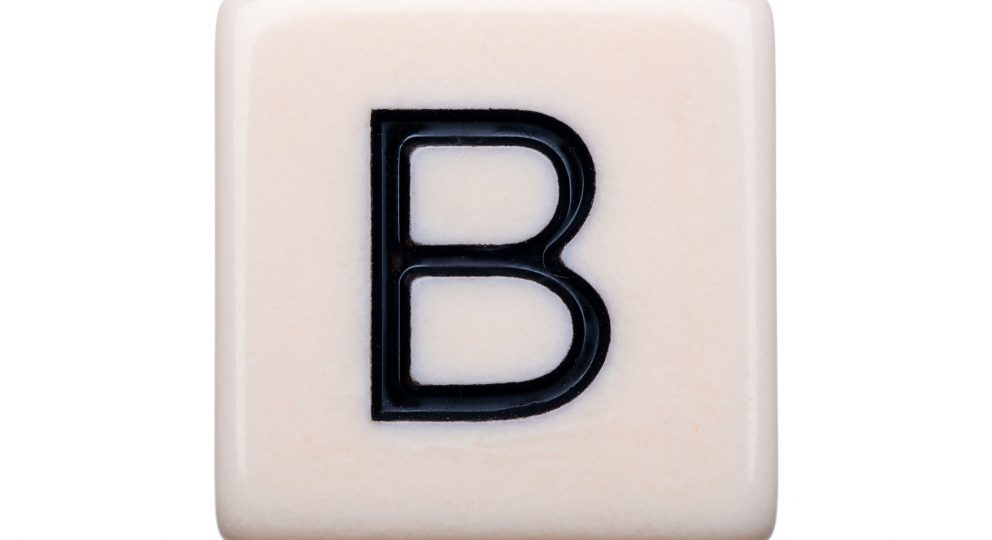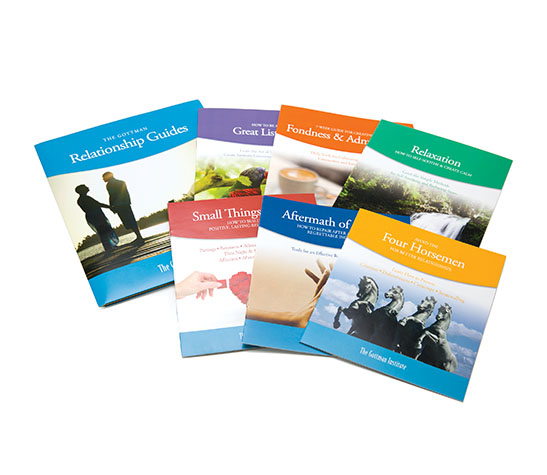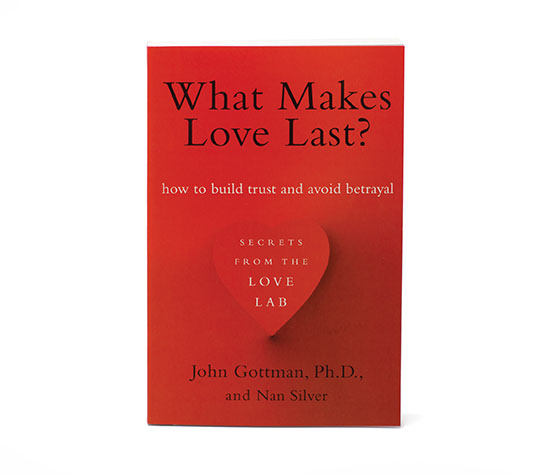There’s a sentence in the introduction of Dr. John Gottman’s book, “What Makes Love Last?”, that is a little bit crazy-making. The sentence:
“Betrayal is the secret that lies at the heart of every failing relationship — it is there even if the couple is unaware of it.”
It just doesn’t seem very Gottman-esque. It implies that (a) there is a single secret and (b) it applies in 100% of failing relationships.
Dr. Gottman’s body of research seems to always include options . There are seven principles, four horsemen, and two kinds of marital conflict. And nothing is 100%. Divorce is predicted with 91% accuracy, 35% of husbands are emotionally intelligent, and 70% of couples that have sex are unhappy with the frequency or quality of the sex. It’s pretty rare that he makes this sort of absolute declaration.
Additionally, the sentence implies that relationship failure isn’t caused by a deficit in communication, compatibility, or chemistry—three of the most popular relationship clichés—but rather the presence of betrayal, the one thing you swore you’d never tolerate.
According to Dr. Gottman, however, if your relationship is struggling, you have indeed tolerated or perhaps perpetrated betrayal.
“Hold your horses,” you might say. “I’ve never had an affair. My spouse hasn’t either. How can you say betrayal is the cause of our relationship troubles?”
It’s a fair question. It’s easy to lump “betrayal” and “infidelity” into the same bucket. Indeed, affairs, even emotional ones, require duplicity that tears at the fabric of commitment. But an affair is never the beginning of betrayal—simply one of the possible outcomes. No question, infidelity is one of the juiciest, most interesting betrayals. That’s why you love “The Good Wife“ and “Scandal” from the comfort of your living room. But, it’s not the most common, nor the most dangerous form of betrayal.
The most damaging betrayals are the everyday ones. The ones that pile up over time as you and your partner consistently ask and answer the question, “Can I trust you?”
Can I trust you to pick up the milk? To listen to my feelings? To not get drunk at that party? To respect my time? To focus on our kids instead of the television? To choose me? For better and for worse? Again? And again?
Most of you are convinced that your spouse would never cheat on you. But are you as sure that he will genuinely care about your anxieties and fears. That she will graciously hear you confess your suspicion that you may be a fraud. That he will still think you’re beautiful even when though you no longer look like the pretty young thing he married way back when.
When the “no’s” pile up, you start to look for “yes” in other places. That’s when alternative outcomes avail themselves. The extra glass of wine you have after the first extra glass. The stay-at-home dad with the great smile. Your mother. Opportunities for full blown betrayal are everywhere.
Seems pretty grim, but I say hold your horses. There’s good news. Since there’s a single secret to failing relationships, there’s also a simple solution. It goes like this:
Can I trust you?
Yes.
The trick is learning how to get to “yes.”
I think it’s important to suspend for now the notion that one of you is the betrayer and the other is the betrayed. You are both responsible. You have to learn to get to “yes.”
The way to “yes” is through a Bonus B Word that is right in the heart of Gottman’s body of research: bids.
A bid is simply your expression of a need for connection. You are responsible to make bids toward your partner, rather than the pretty lady at the gym. You are also responsible to turn toward your partners bids, rather than bury your nose in your phone.
Bids aren’t complicated. Just pay attention. Be present. Show him that you are trustworthy by listening to what he says, answering his question, laughing at his joke… even the one you heard before. Show her that you trust her by asking her advice, playing with her, complimenting her shoes.
The key is to make a big pile of “yes.” Concentrate first on “Yes, I am trustworthy.” And lean into “Yes, I trust you.” “Yes” is at the heart of every thriving relationship. Trust me.






